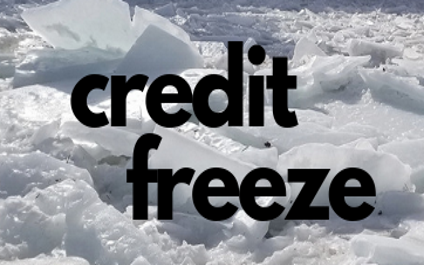
If your credit card is lost or stolen, or you think someone has unauthorized access to your account, you can prevent new transactions. Additionally, freezing your credit report(s) does not put a hold on any of your open accounts: you’re still responsible to make payments and manage your creditor relationships. If there is an existing account on your credit report that was opened by a fraudster, you will have to take steps to resolve that credit fraud. It’s important to note that a credit freeze only protects you from someone opening a new account under your name. Freezing your credit may help prevent fraud on an ongoing basis while you resolve unauthorized activity with your current creditors. It’s probably a good idea to freeze your credit as soon as you receive a fraud alert and suspect an identity thief has your information. 1 Reviewing these important key factors can help you detect recent changes to your account.
Freeze my credit free#
If you’re a Discover® Cardmember, you can get a free Credit Scorecard with your updated FICO® Score every month and important information like credit utilization, number of missed payments, number of recent inquiries, length of credit history and total number of accounts.


And government agencies with a court order or search warrant will also be able to access your credit file. Your current creditors will still be able to see your credit information even with a credit freeze in place. Freezing your credit may help prevent identity thieves from applying for new credit and opening fraudulent accounts in your name, because a credit lock keeps a potential creditor from being able to pull a copy of your credit report or do a credit check.įreezing your credit doesn’t mean your credit history is completely off-limits.

A credit freeze (also called a security freeze or credit lock) limits access to your credit report. It can also end up costing you money in fraudulent charges and the expenses required to resolve identity theft issues.īut there are some things you can do to help protect your information, including freezing your credit. If unchecked, authorized access to your credit file can affect your credit score and make it more difficult to get credit in the future. Whatever it was, you have reason to believe that you were the victim of identity theft or fraud.įinding out that someone could have accessed and used your personal information is a frightening prospect. Maybe you received a fraud alert from your credit card company, or maybe you found a suspicious charge on your bank statement. You can request a credit freeze at all three of the major credit bureaus (Equifax, Experian, and TransUnion) online, over the phone, or by mail. Freezing your credit blocks unauthorized access to your credit file.Ĭredit freezing may help prevent identity thieves from opening new accounts in your name.


 0 kommentar(er)
0 kommentar(er)
